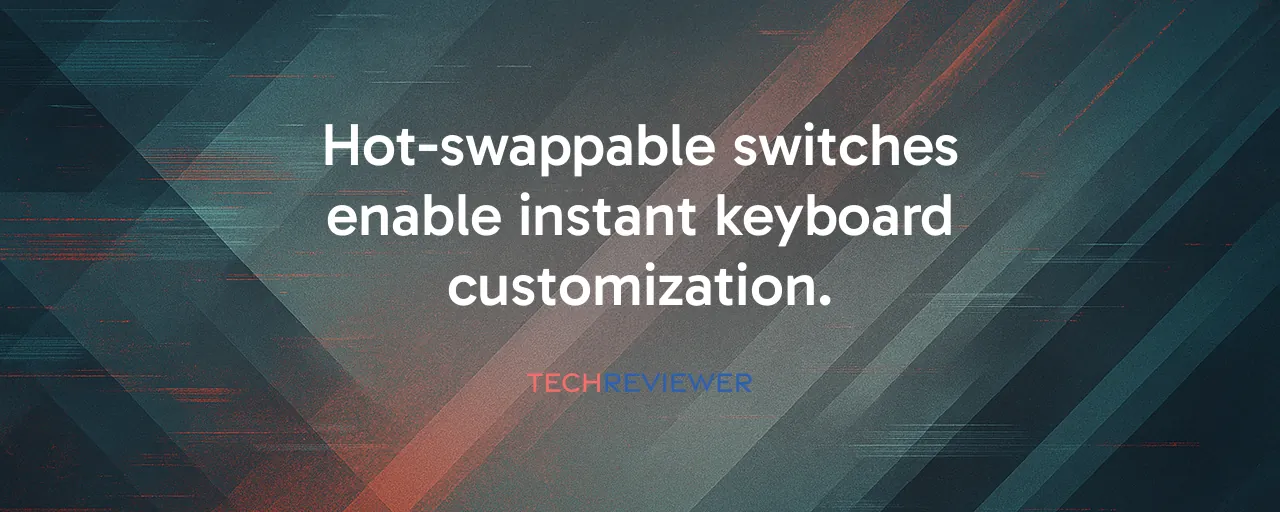A New Era of Keyboard Freedom
Turtle Beach's Vulcan II TKL keyboard, launched on October 13, 2025, shakes up the gaming peripheral world with a feature that's turning heads: hot-swappable mechanical switches. For just $119.99, gamers and typists can swap out switches without soldering, tweaking their keyboard's feel in minutes. This practical leap lets anyone from esports pros to home office workers craft a setup that fits their style.
Hot-swappable switches mean you can pop out a switch and replace it with another, no tools or technical know-how required. Want lighter switches for lightning-fast FPS inputs? Swap them in. Prefer a clicky feel for coding marathons? That's an option too. Turtle Beach includes a keycap and switch puller, plus three spare TITAN HS switches to get you started, making experimentation accessible right out of the box.
Why Size and Feel Matter
The Vulcan II TKL's tenkeyless design, which ditches the numeric keypad, frees up about six inches of desk space compared to full-size keyboards. For competitive gamers, this means more room for sweeping mouse movements in games like Valorant or Apex Legends. Studies show TKL layouts reduce shoulder strain by up to 20 degrees, letting you keep your mouse closer without awkward reaches. It's a small change with a big impact for long gaming or work sessions.
Beyond space, the keyboard's TITAN HS switches, with a 1.8mm actuation distance and 45g force, deliver smooth, fatigue-free typing at 102 words per minute, according to early reviews. Factory pre-lubrication cuts down on scratchy keystrokes, and sound-dampening foam keeps noise low, so you won't annoy coworkers or teammates. The brushed aluminum top plate adds durability, while per-key RGB lighting lets you customize your setup's vibe.
Learning From the Past: Glorious and Keychron
Turtle Beach isn't the first to embrace hot-swappable keyboards. Glorious kicked things off in 2017 with the GMMK series, proving gamers would embrace modularity if it didn't break the bank. Keychron's V series later took the budget market by storm, offering hot-swap keyboards for as low as $45 with open-source firmware for total control. Both showed that customization could go mainstream, but their focus on either ultra-budget or premium builds left a gap.
Turtle Beach steps into this space with the Vulcan II TKL, blending affordability with gaming-focused features like a 1000Hz polling rate for 1ms response times and ReacTap SOCD for precise movement control. Unlike Keychron's minimalist designs, Turtle Beach adds gamer flair with RGB sync and a volume wheel for instant audio tweaks. Compared to Glorious's broader price range, the Vulcan II TKL hits a sweet spot at $119.99, though some enthusiasts might miss Keychron's QMK firmware flexibility.
A Win for Users and the Planet
Hot-swappable switches don't just make keyboards fun to tweak; they extend their lifespan. Instead of tossing a keyboard when a switch fails, you can replace it, potentially stretching a keyboard's life from two years to a decade. This aligns with growing calls for sustainable electronics, reducing e-waste in a world where keyboard manufacturing already carries a carbon footprint from aluminum and plastic production.
For users, the benefits are immediate. Competitive gamers can fine-tune switches for speed or precision, while remote workers enjoy a compact layout that eases arm strain. The included volume wheel and push-to-mute feature make voice chats and media control seamless. However, some enthusiasts point out drawbacks: the wired-only design lags behind wireless trends, and Turtle Beach's Swarm II software isn't as flexible as open-source alternatives like QMK.
Shaking Up the Market
Turtle Beach's move challenges giants like Razer and Logitech, who've been slower to adopt hot-swappable switches at this price. The mechanical keyboard market, projected to hit $3.87 billion by 2030, is growing fast, fueled by gaming and remote work trends. Turtle Beach, known for headsets, is leveraging its PDP acquisition to grab a slice of the $3.9 billion PC peripherals market, competing directly with Keychron and Glorious.
Still, hurdles remain. Casual gamers might not grasp the appeal of switch swapping, and the learning curve for picking switches can feel daunting. Enthusiasts used to premium builds might find the $119.99 price point lacks features like gasket mounting. Yet, by making customization accessible, Turtle Beach is pushing the industry toward a future where everyone can build their perfect keyboard without spending a fortune.
